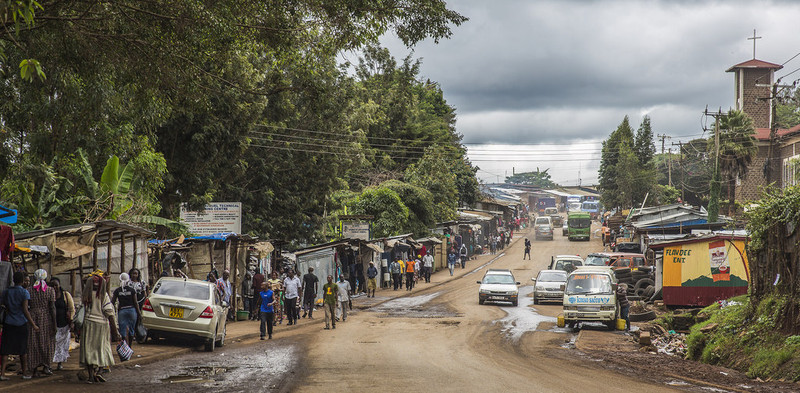As a new European Commission now takes over, there are some nuanced messages concerning the relations with Africa emerging from the statements of president Ursula Von der Leyen. She prioritises the development of a “comprehensive strategy for Africa”.
The idea is not new.
In October 2005 the European Commission published such a strategy. Its stated objective was to “give the EU a comprehensive, integrated and long-term framework for its relations with the African continent.”
The strategy was a response to notable economic transformations taking place in the continent, the emergence of the African Union and other geopolitical shifts that created new demands and focus.
More than a decade later, it is obvious to admit that the relationship between the two continents is getting more complex than ever. Yet it continues to rely on multiple, fragmented, at times contradictory, cooperation tools and initiatives. There is strong resistance to truly move towards a comprehensive cooperation framework.
Why? Were the last 15 years a missed opportunity?
The erosion of European influence on the economic developments shaping the continent is certainly an indication that something is not going well.
Africa has been accumulating a trade deficit with the EU since 2015. The structure of trade between the two regions barely changed over the last decades.
Primary goods remain a key component of EU’s imports from Africa thus making Africa’s trade relations with the EU relatively vulnerable.
Since 2000, the EU has been pushing for the conclusion of trade agreements that remain controversial in many quarters. The focus on the number of trade agreements as a barometer for a shift towards stronger economic ties between the two continents has shown the limits of such an approach.
It fails to support industrialisation and infrastructure development. Structural transformation of African economies is key. It requires proactive support notably through the backing of the recently-launched African Continental Free Trade Area (AfCFTA).
The question many asked is whether the EU is ready to engage in the new paradigm Africa seeks; or continue to promote its economic agreements in a atomised and old-fashioned market access vs official development assistance (ODA) equation.
The EU is reassuring its African partners that it remains committed to investment promotion.
The European External Investment Plan, launched in 2017, is an example of such drive.
‘Leveraging’ isn’t working
The fund of €4.5bn is supposed to leverage an estimated €44bn in investments through guarantees and blended financing. This ambitious plan is yet to deliver results.
There is little doubt Europe will need to use its limited resources smartly to benefit both Africa and European investors. Targets must be realistic.
Evidence from initiatives where blending was used suggests that for every $1 invested from ODA funding, private finance mobilised small additional amounts: about $0.37 for low-income countries, $1.06 for lower middle-income countries and $0.65 for upper middle-income countries.
This performance indicates the European Investment Plan leveraging targets are far-fetched.
Investments will have to respond to the most pressing issue for African countries: employment. In this respect the quality of the investment matters more than the number of projects it creates.
In 2018, for instance, although emerging market investors, largely from China, have accounted for 34 percent of the FDI projects in Africa, they were responsible for more than half of the jobs created.
If curbing migration is the EU motivation for investment there are certainly some detectable inconsistencies.
The EU Trust Fund for Africa has allocated part of its €4.5bn pot to initiatives aimed at stopping the migratory flows to Europe.
Areas of common concern such as human trafficking have been high on the priority list of both sides, even though most of the action is clearly focusing on short-term concerns.
Africans resent the disguised conditionality EU is introducing in their engagements with some African countries. They were expecting the EU to recognise the multidimensional nature of migration and help address its root causes.
Africa’s contribution in tackling migratory pressures should not be underestimated.
The continent hosts 26 percent of the world’s refugee population. Many of these refugees come from regions such as the Horn. This sensitive region has been experiencing a palpable EU disengagement, as shown by the EU declining financial support to the African peace keeping operations in the region.
From a pragmatic perspective migrants’ remittances are guaranteeing a predictable resources flow to the originating countries, largely surpassing development aid.
For example in 2018, remittances from the diaspora attained 11.6 percent of Egypt’s GDP, 12 percent and 14.7 percent of the GDP of Liberia and Lesotho respectively. Attempts to put cooperation on migration in one neatly isolated corner will not work.
The new commission is right in saying that the EU needs renewed ambition and a comprehensive strategy for Africa. But to do that, it will need to be clearer and convincing.
It can start by bringing together an array of disjointed initiatives and dialogues not anchored in a single structured instrument. The coming months will be critical.
If the 2020 opportunity is missed, we can rest assured that in 15 years, we will still be hearing the call for a comprehensive strategy to govern the EU relations with Africa.
Read the blog here

